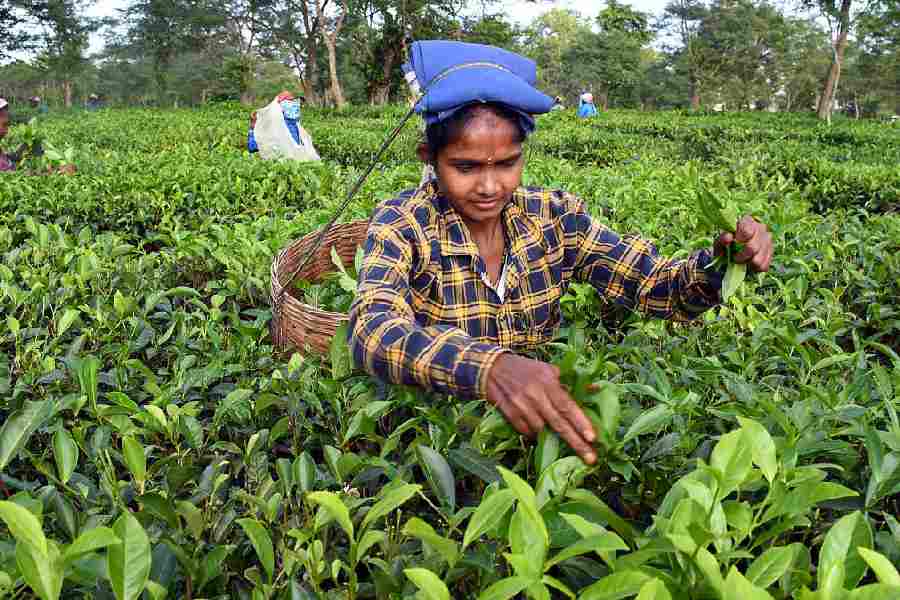A group of factories that purchase green leaf from small tea growers have rejected the government’s decision to put an entire crop of dust tea for sale by auction from April 1, raising concerns about the availability of clean tea.
Assam Bought Leaf Tea Manufacturers’ Association (ABLTMA) has called on its members to test samples of green leaf and made tea (processed tea) from accredited laboratories to check the maximum residue level (MRL) of pesticides and chemicals as per Indian food safety standards.
ABLTMA, which represents 110 factories in Assam, said it would decide on the next course of action about the dust tea auction once the test results come in two weeks.
The tea auction enables buyers to independently draw samples from tea being offered for sale and check the MRL levels.
By contrast, such practices are not strictly followed when teas are sold privately, especially for the domestic market.
Small tea growers, who contribute 55 per cent of Indian tea production, are often alleged to lack knowledge about good harvesting practices that can generate compliant and clean teas.
Instead, they usually focus on maximising yield (production of green leaf) by unchecked use of chemicals and pesticides.
Since dust is generated from the same crop that produces leaves and broken, channelising this category (dust) to pass through a funnel where testing and detection would be possible, chances of detection of MRL can go up.
Bought leaf factories buy teas from small growers, an important vote bank in the state of Assam, make teas and sell them to the open market as well as to large packers. ABLTMA officials said that small growers should ensure providing clean teas to avoid rejection.
“We buy leaves and pay the farmers. If the tea is rejected later due to MRL issues, how are we going to identify which grower has failed to supply clean tea and recover money from him?,” said an ABLTMA official.
If the association stops procurement of green leaf at the pretext of non-availability of complaint tea regularly in good quantity, it would hit the livelihood of small growers in poll-bound Assam and create a political problem for the incumbent BJP government.
The large estates, especially the well-managed ones, are believed to be more compliant with food safety standards given they also focus on exporting where the presence of MRL can lead to the rejection of consignment.
However, estates also buy green leaf from STGs in large quantities to achieve an economy of scale of operation, especially to sell in the domestic market.
Large producers and packers have welcomed the government's decision to put dust tea mandatorily to the auction route on a three-month trial basis. Dust, used in tea bags and ready-to-drink tea-based beverages, makes up 15-20 per cent of the production.

